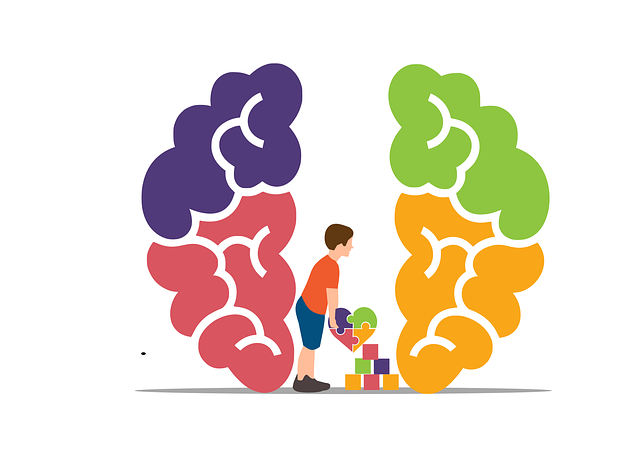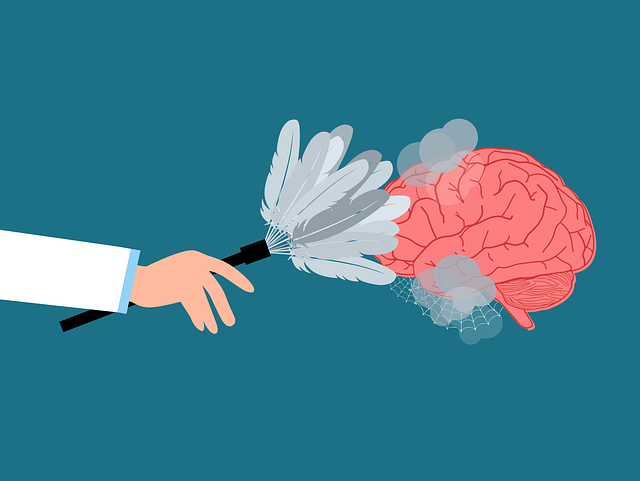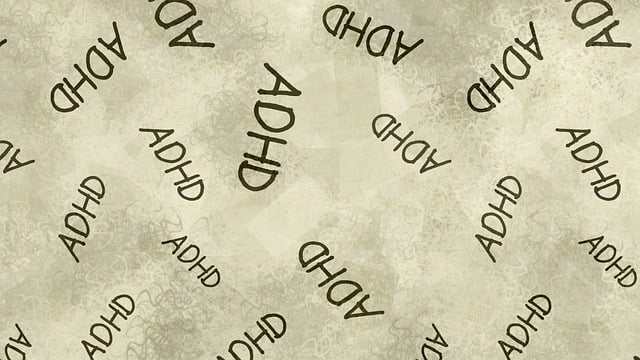Adolescent substance abuse is a multifaceted issue addressed through early intervention strategies like crisis guidance and empathy-building. Therapy focusing on family counseling identifies risk factors, enhances communication, teaches stress management, and promotes healthier coping mechanisms. This approach reduces the likelihood of substance abuse by strengthening family relationships and boosting teens' resilience. Incorporating cultural sensitivity and burnout prevention ensures tailored interventions for diverse families. Community programs emphasizing long-term prevention through therapy for adolescent teens and family counseling target familial dynamics, fostering open dialogue, support systems, and healthy coping mechanisms to mitigate substance abuse risks.
Substance abuse among adolescents is a growing concern, with significant risks impacting their health, well-being, and future prospects. This article delves into comprehensive risk reduction strategies tailored for teenage substance abusers. We explore essential aspects such as understanding the unique risks faced by teens, the pivotal role of family counseling, evidence-based therapeutic interventions, fostering a supportive home environment, leveraging community resources, and implementing long-term prevention strategies. By addressing these key areas, we aim to guide parents, caregivers, and professionals in effectively supporting adolescent teens toward a healthier future.
- Understanding Substance Abuse Risks in Adolescent Teens
- The Role of Family Counseling in Risk Reduction
- Evidence-Based Therapies for Effective Intervention
- Creating a Supportive Home Environment
- Community Resources and Long-Term Prevention Strategies
Understanding Substance Abuse Risks in Adolescent Teens

Adolescent substance abuse is a complex issue that requires a deep understanding of the risks involved. Teens are particularly vulnerable to peer pressure and may experiment with drugs or alcohol as a coping mechanism for underlying emotional or psychological issues. They might struggle with stress, anxiety, or depression, which can lead to substance abuse if left unaddressed. Family dynamics also play a significant role; teens from unstable or disruptive homes may turn to substances as a means of escape or self-medication.
Early intervention is crucial through crisis intervention guidance and empathy-building strategies. Therapy for adolescent teens, often involving family counseling, can help identify risk factors and provide support. By teaching effective stress management techniques, these interventions aim to empower teens with healthier coping mechanisms. Family counseling creates a safe space to address concerns, improve communication, and build stronger relationships, all of which contribute to reducing the likelihood of substance abuse and promoting overall well-being.
The Role of Family Counseling in Risk Reduction

Family counseling plays a pivotal role in risk reduction strategies for substance abuse among adolescents and teens. This form of therapy provides a safe space for families to openly discuss issues, fostering better understanding and communication. By addressing underlying problems within the home environment, family counseling helps identify potential triggers for substance misuse and offers tools to manage them effectively. Through this process, parents and guardians gain valuable insights into their teen’s behavior, emotions, and thought patterns, enabling them to provide more supportive care.
The approach is particularly beneficial in building resilience and confidence among adolescents. By learning effective coping mechanisms and problem-solving strategies, teens can better navigate stress, anxiety, or social pressures without resorting to substance abuse. Moreover, family counseling encourages the development of healthier relationships within the household, creating a solid support system that contributes significantly to risk management planning for mental health professionals.
Evidence-Based Therapies for Effective Intervention

Evidence-based therapies play a pivotal role in effective intervention strategies for substance abuse among adolescent teens. Family counseling is one such approach that has garnered significant attention due to its ability to address the complex dynamics within families that contribute to substance misuse. This therapeutic method brings together all family members, fostering open communication and promoting healthier coping mechanisms. By involving parents or caregivers, therapists can help them understand their child’s behavior, learn effective discipline strategies, and develop supportive home environments that discourage substance abuse.
The integration of cultural sensitivity in mental healthcare practice is essential when employing these evidence-based therapies. Recognizing the unique cultural backgrounds and beliefs of each family allows for tailored interventions. Mental health professionals should be adept at assessing risk factors while considering potential cultural influences, as this can impact both the presentation of substance abuse and the acceptance of treatment. Additionally, burnout prevention strategies are crucial for healthcare providers to maintain their effectiveness in the long term, ensuring sustained support for adolescents and their families navigating substance abuse challenges.
Creating a Supportive Home Environment

Creating a supportive home environment is a powerful tool in preventing and mitigating substance abuse among adolescent teens. Family counseling sessions can play a pivotal role in fostering open communication, strengthening family bonds, and teaching healthy coping mechanisms. Through therapy, parents and teens can learn to navigate challenging situations together, promoting emotional regulation within the household. This safe space allows for the addressing of underlying issues that may contribute to substance abuse, such as stress, anxiety, or trauma, providing a solid foundation for mental well-being.
Cultural sensitivity in mental healthcare practice is essential when considering diverse family dynamics and backgrounds. Risk assessment for mental health professionals should encompass not only individual factors but also familial and community influences. By understanding the unique cultural context, therapists can tailor their approach, ensuring that interventions are effective and respectful of the teen’s identity. This holistic perspective, combined with family counseling, can significantly reduce the risk of substance abuse and promote a healthier, more resilient family environment.
Community Resources and Long-Term Prevention Strategies

Community resources play a pivotal role in mitigating substance abuse among adolescents and teens by offering long-term prevention strategies tailored to their unique needs. Programs focused on early intervention often involve family counseling, targeting not only the teen but also their caregivers. This holistic approach recognizes that familial dynamics significantly influence a young person’s relationship with substances. By fostering open communication, strengthening support systems, and imparting self-awareness exercises, these initiatives aim to equip families with the tools to recognize and address potential red flags early on.
Incorporating stress reduction methods and emotional healing processes into community resources is another effective strategy. Adolescence is a period of heightened vulnerability, often marked by intense emotions and mounting pressures. By teaching teens healthy coping mechanisms for stress and trauma, these programs empower them to make informed choices regarding their well-being. Such initiatives not only prevent substance abuse but also promote overall mental health and resilience, ensuring that young individuals are better equipped to navigate the challenges of adolescence and adulthood.
Substance abuse among teens is a complex issue, but with comprehensive strategies, risks can be significantly reduced. By understanding the unique challenges faced by adolescent teens, implementing evidence-based therapies, and fostering supportive home environments, we can empower families to prevent substance abuse effectively. Family counseling plays a pivotal role in enhancing communication, strengthening relationships, and equipping parents with tools to guide their teens. In combination with community resources and long-term prevention strategies, these collaborative efforts can create a robust safety net, ensuring a brighter future for our youth. Effective intervention through therapy tailored to adolescent teens remains an indispensable component in mitigating substance abuse risks within families.














